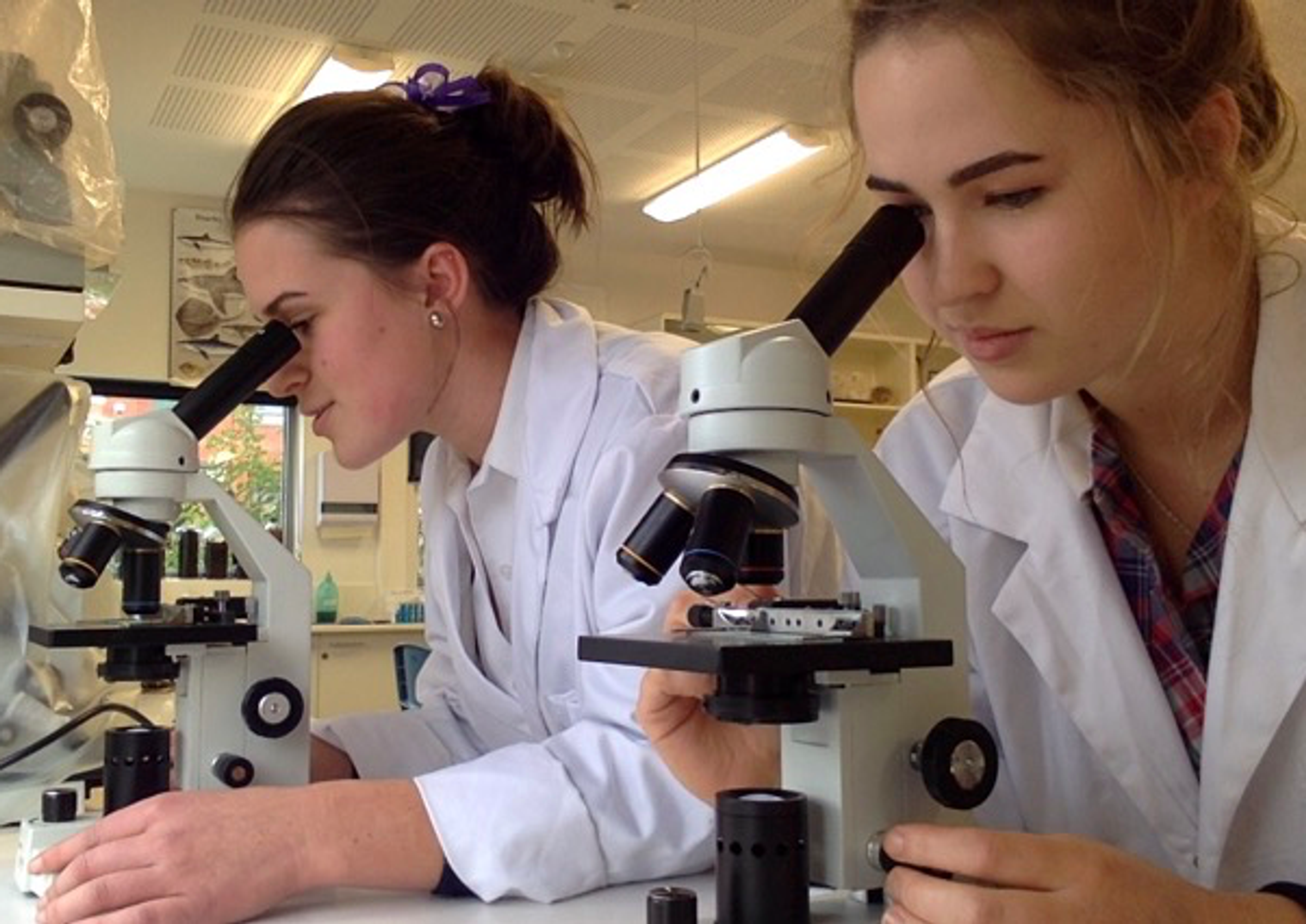TCE Biology Level 3

TCE Biology Level 3
| 🎓Course Type | Pre-tertiary |
|---|---|
| TASC Code | BIO315116 |
| TCE Points | 15 |
| ⏱Hours | 150 |
| ✔️Standard | N/A |
| 📚Prerequisites | Year 11 students taking this course will need to have successfully completed the Biological Science course in the High School, or equivalent, preferably obtaining a B grade or better. |
📎Desirable prior experiences | As above |
| 📝Assessment | Internal - ongoing against criteria External - 3 hour examination |
What will I learn?
This syllabus is designed both for students who are proceeding to tertiary study and for students who have a general interest in biology.
It is intended that students will:
- Develop problem solving, practical and personal skills that allow them to function as individuals in contemporary society
- Develop an understanding of biological principles and be able to apply these in understanding the world they live in
- Be encouraged to ask questions and to develop skills that will help them to seek and gain information for themselves
- Develop considered opinions based on evidence and rationality and develop an open-minded, critical approach to scientific and broader issues
- Develop an understanding of the levels of biological organisation
- Develop an understanding of the processes occurring in biological systems and to be able to apply these to a changing world
The content of the syllabus consists of six essential themes:
- Structure reflects function
- Energy input/output
- Materials input/output
- DNA: the code of life
- Maintaining equilibrium
- Managing challenges
Each theme will be explored at four levels of biological organisation:
- Chemical basics of life
- Cells
- Organisms
- Continuity of organisms and survival of changes
Why should I consider this course?
The purpose of science education is to develop scientific literacy, helping learners:
- to be interested in, and understand, the world around them;
- to engage in discourse about the scientific and technological aspects underlying global and local issues;
- to understand the testable and contestable nature of science, and question the claims made by others about scientific matters;
- to be able to identify questions, draw evidence-based conclusions and discuss their validity; and
- to form opinions, that are reasoned and informed, about the environment, about their own health and well-being, and about the role and impact of science on society.
Biology is the study of the fascinating diversity of life as it has evolved and as it interacts and functions. Investigation of biological systems and their interactions, from the molecular level to cellular processes to ecosystem dynamics, has led to biological knowledge and understanding that enable us to explore and explain everyday observations, find solutions to biological issues, and understand the processes of biological continuity and change over time.
What Skills does this course provide?
This course aims to develop learners’:
- sense of wonder and curiosity about life and respect for all living things and the environment
- understanding of how biological systems interact and are interrelated; the flow of matter and energy through and between these systems; and the processes by which they persist and change
- understanding of major biological concepts, theories and models related to biological systems at all scales, from subcellular processes to ecosystem dynamics
- appreciation of how scientists use biology in a wide range of applications, and how biological knowledge influences society in local, regional and global contexts
- ability to plan and carry out fieldwork, laboratory and other research investigations including the collection and analysis of qualitative and quantitative data and the interpretation of evidence
- ability to use sound, evidence-based arguments creatively and analytically when evaluating claims and applying biological knowledge
- ability to communicate biological understanding, findings, arguments and conclusions using appropriate representations, modes and genres.
What Pathway Options does this course provide?
The study of Biology will provide a foundation for learners to critically consider and to make informed decisions about contemporary biological issues in their everyday lives.
It may be studied as part of a pathway to tertiary study and careers in areas such as medicine, agriculture, botany, zoology, marine science, biotechnology, health science, pharmacy, nursing or veterinary science. It is also suitable for learners wishing to study a science as part of a general education.
